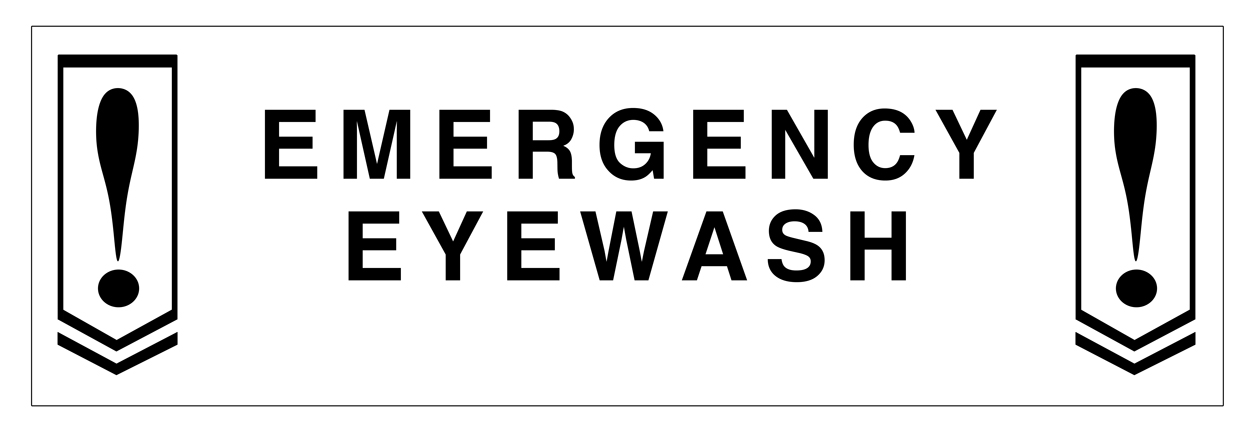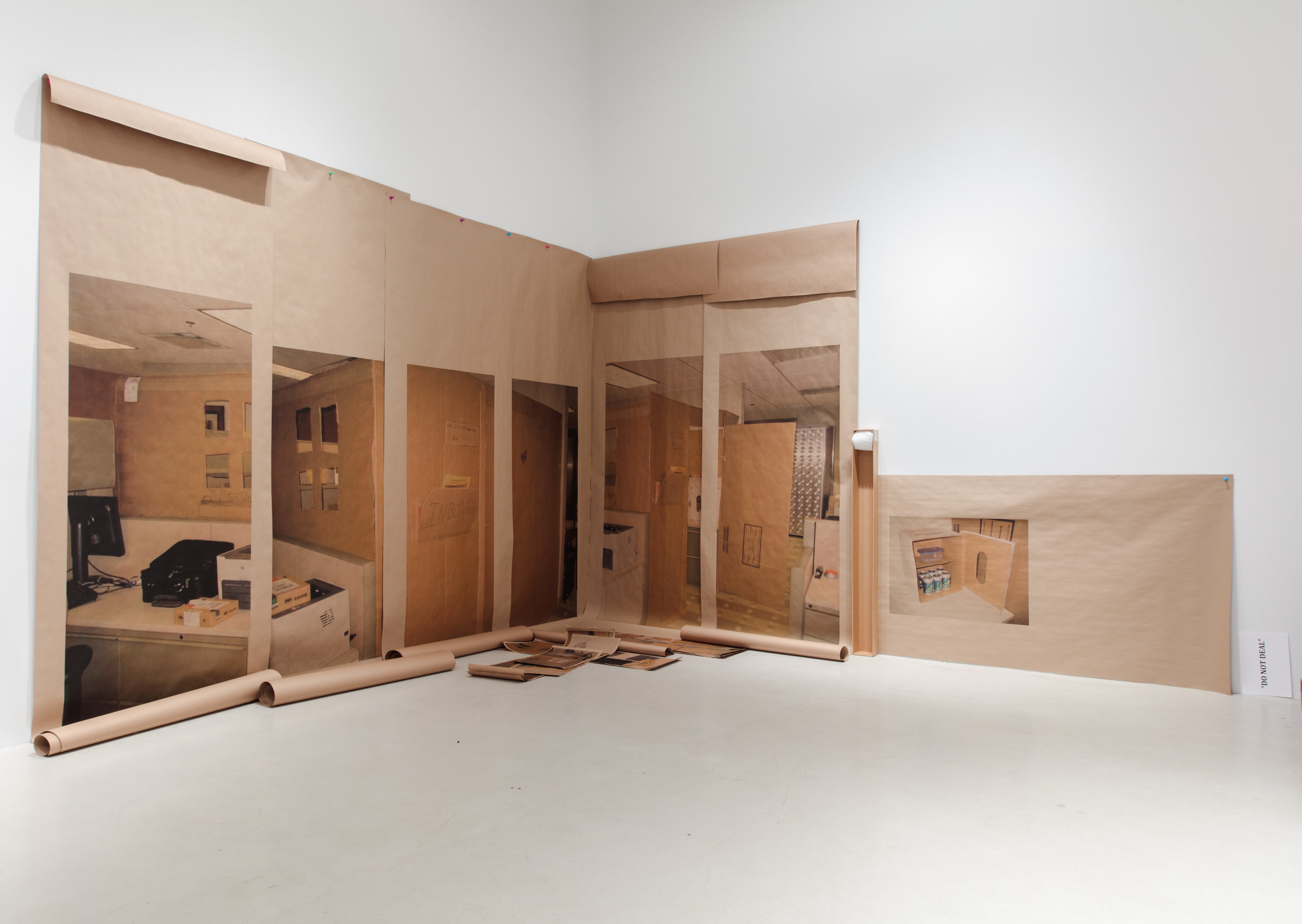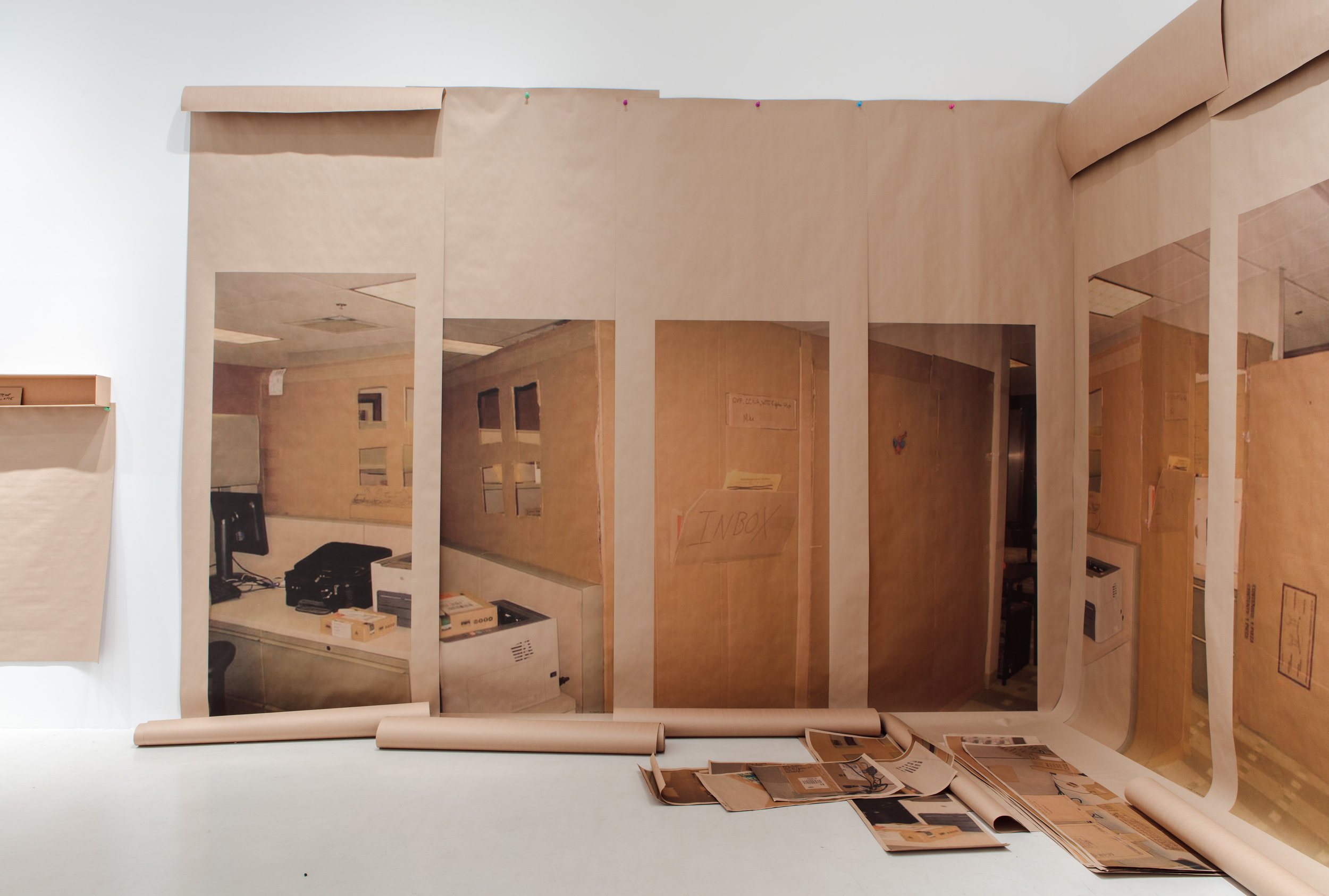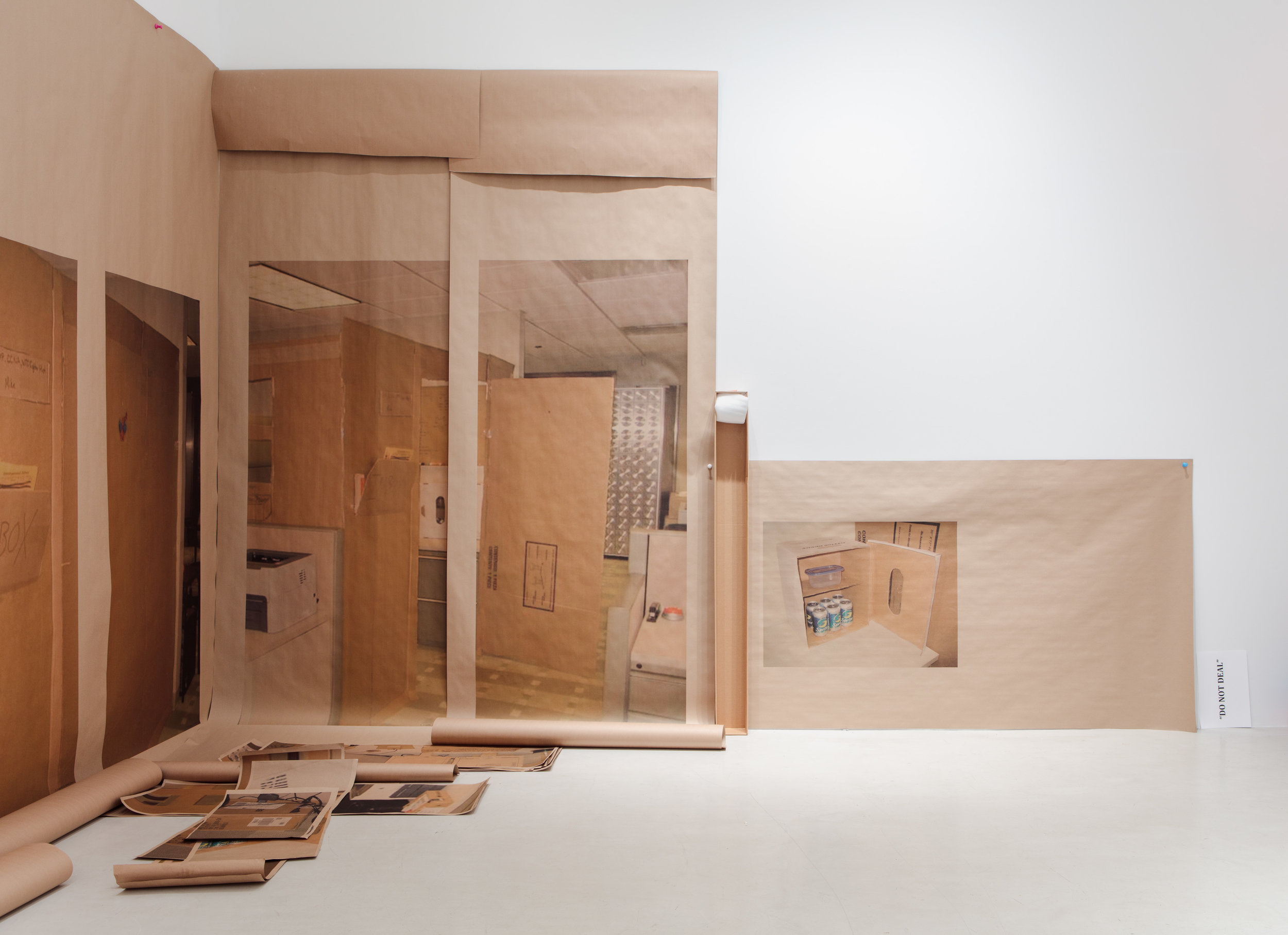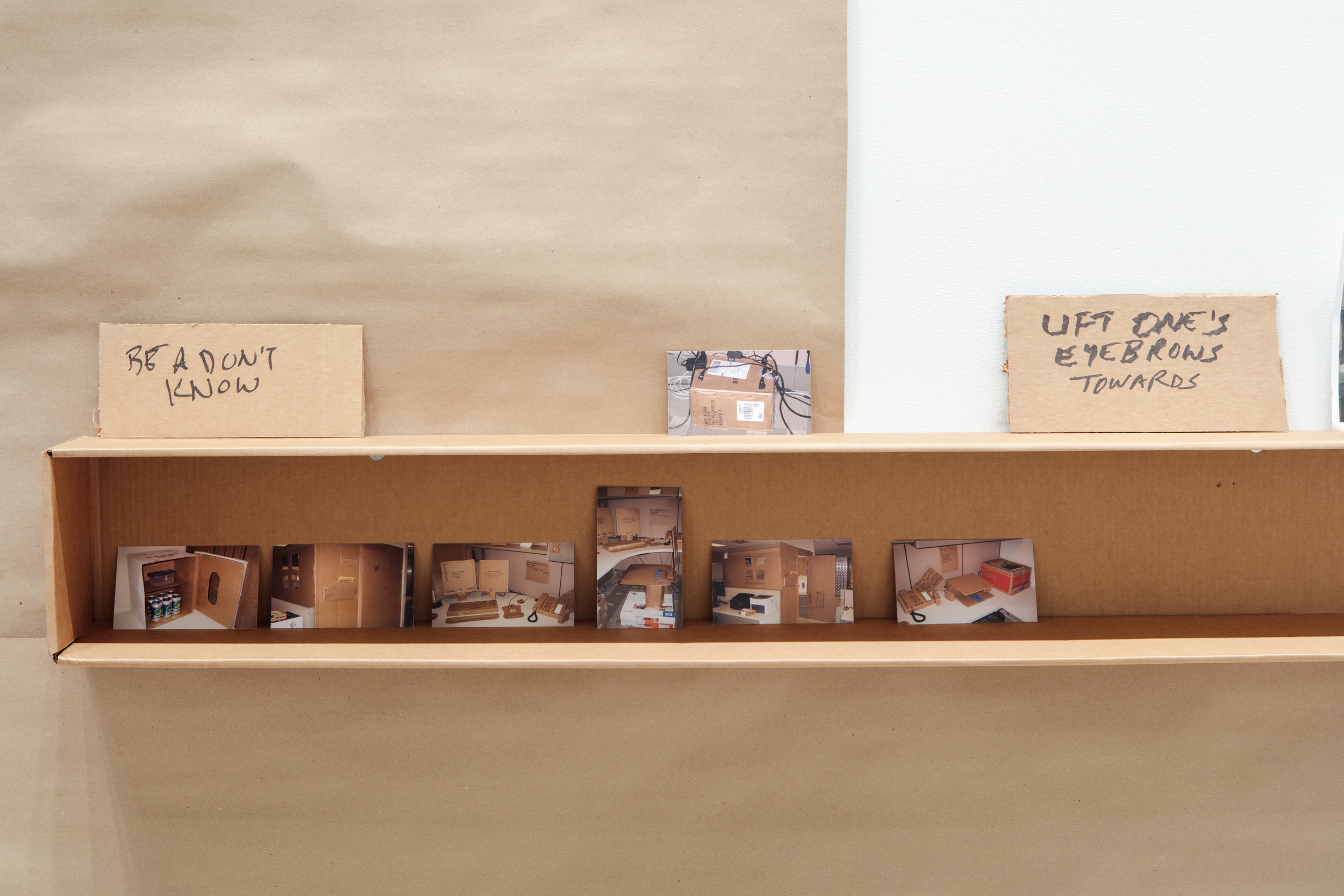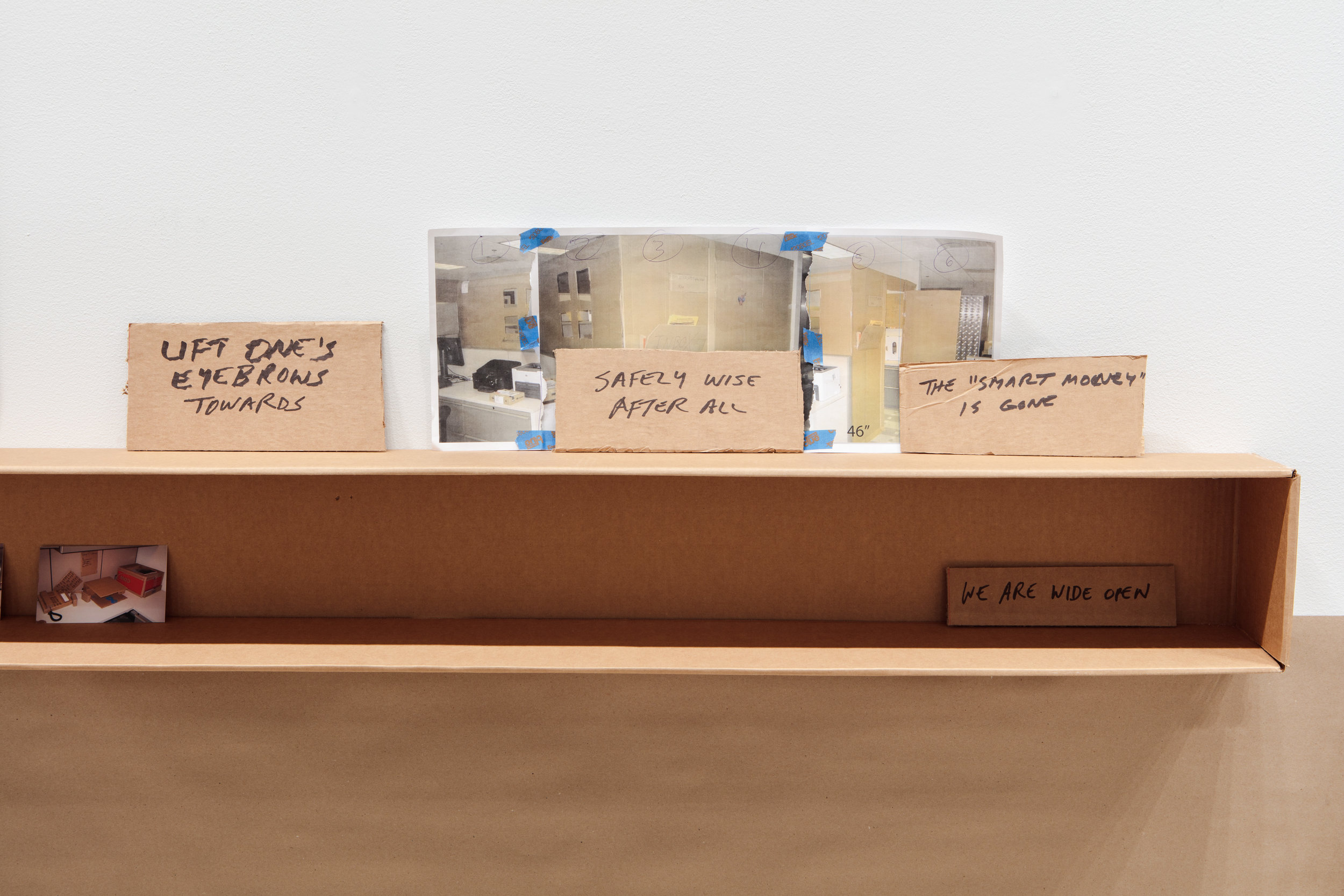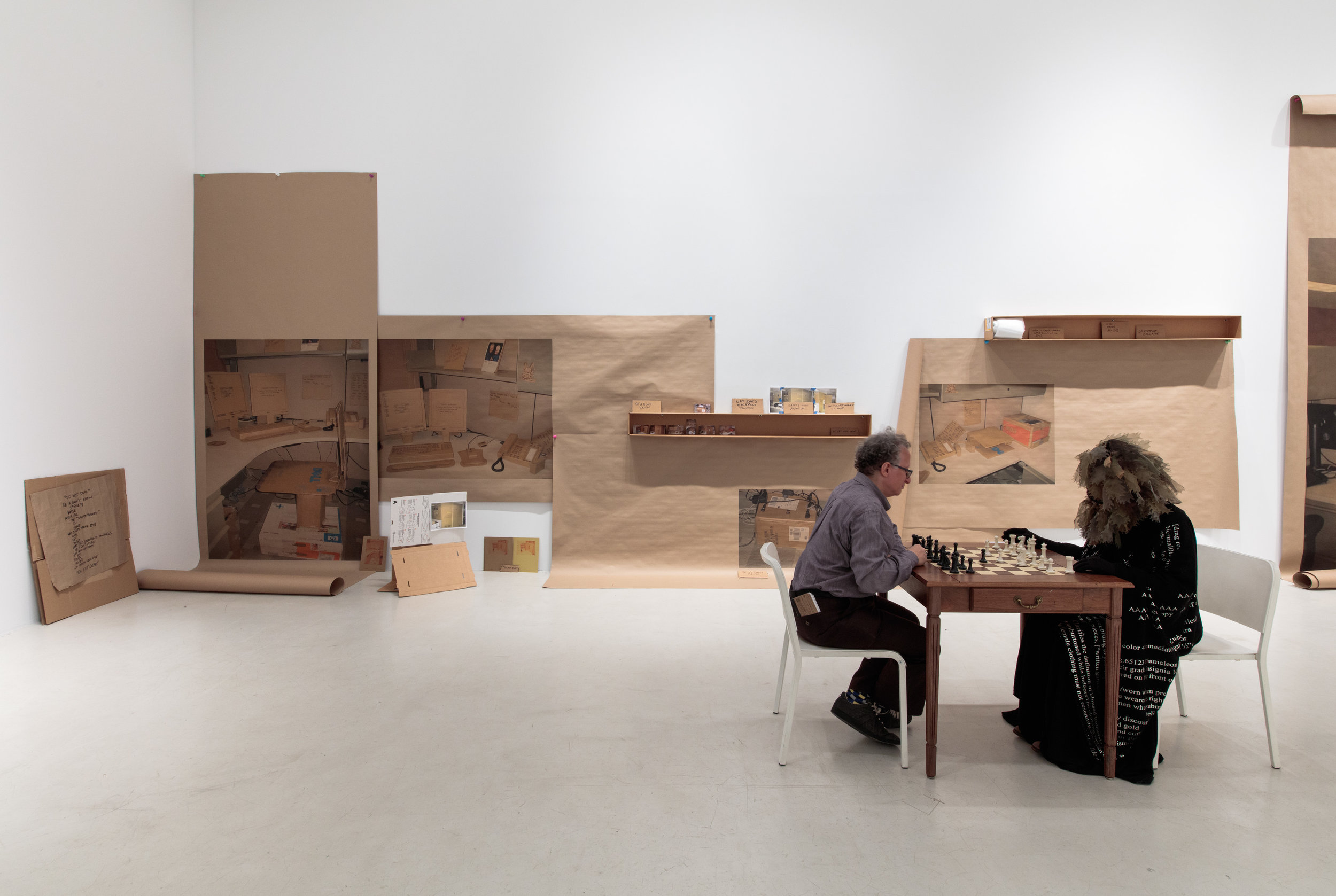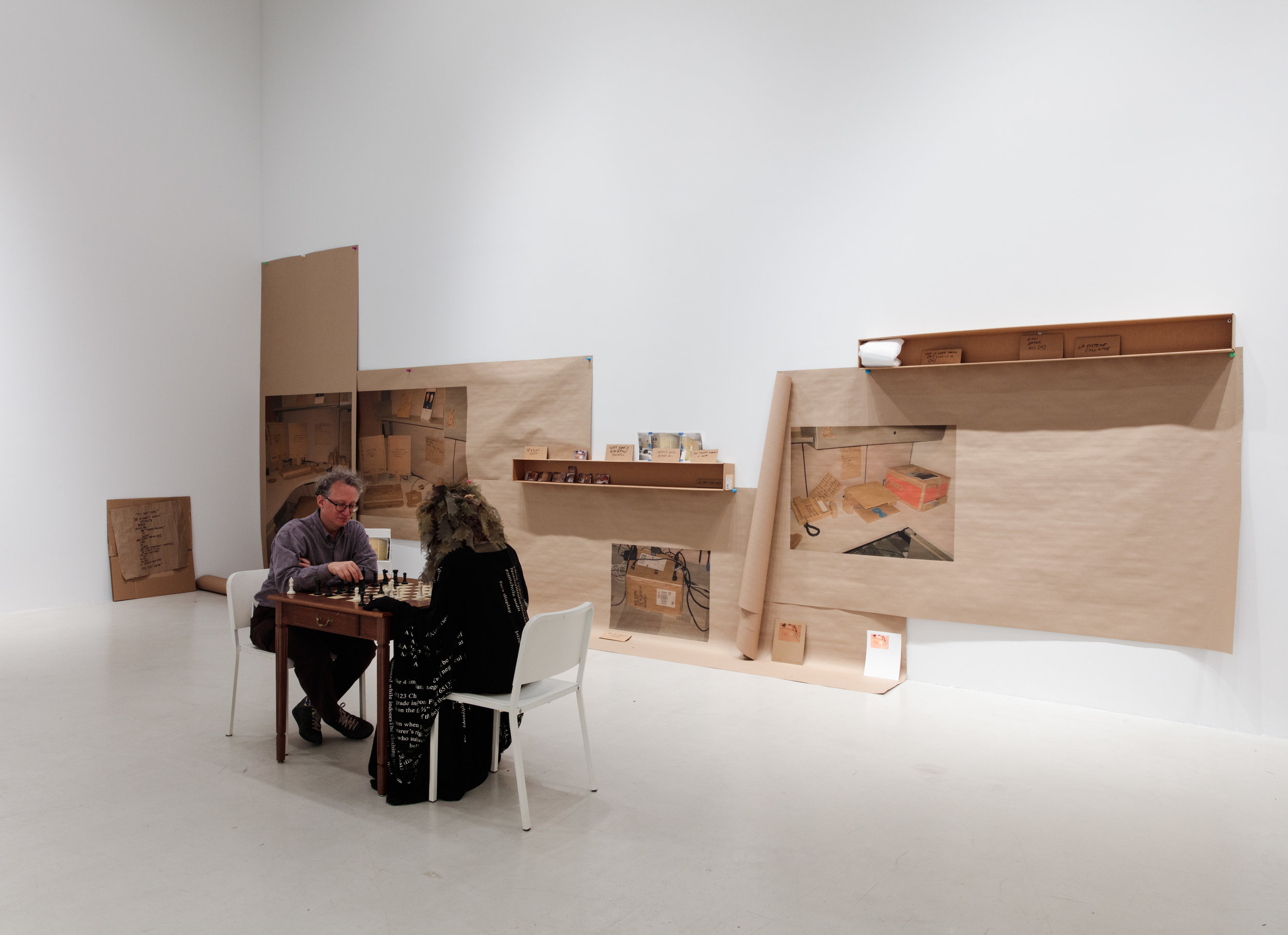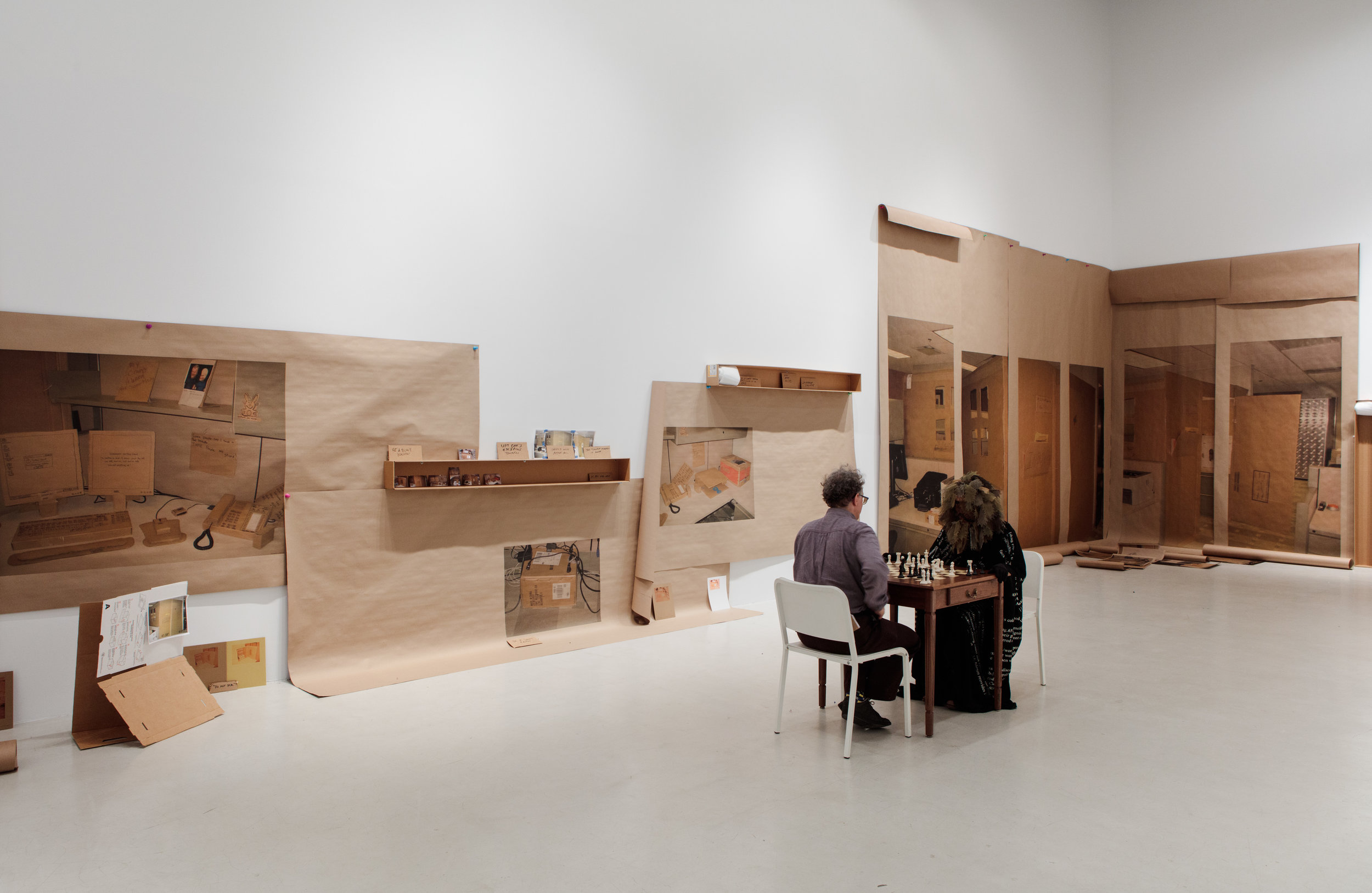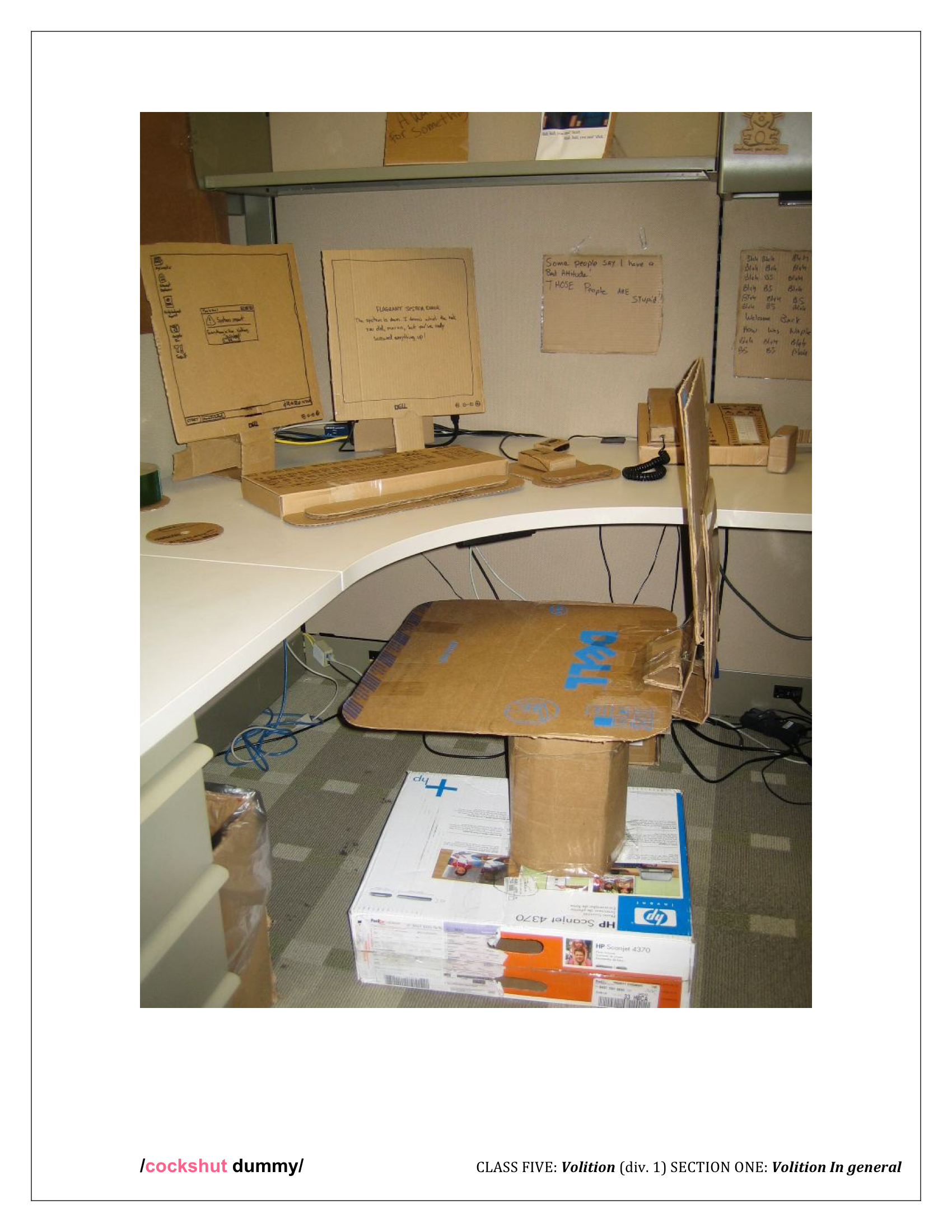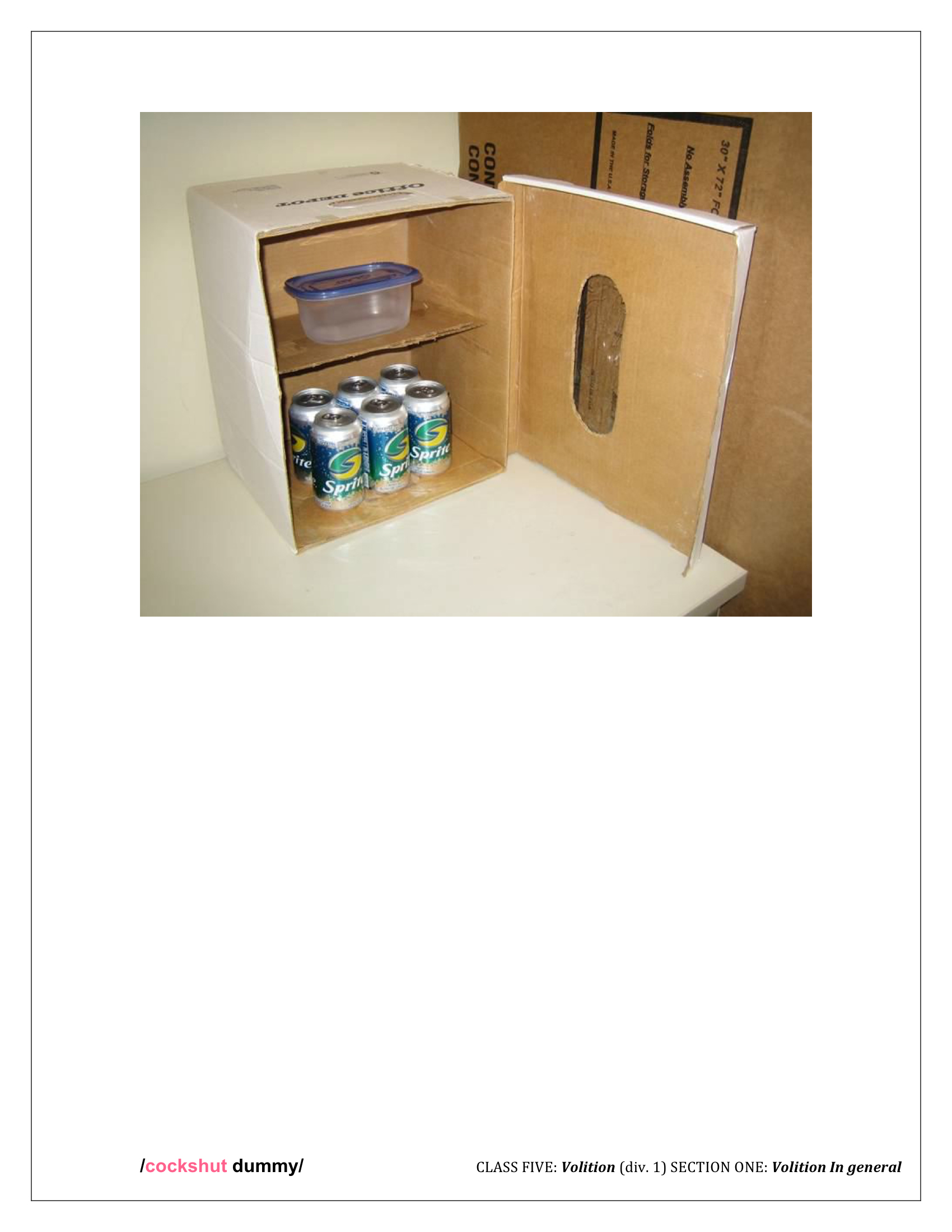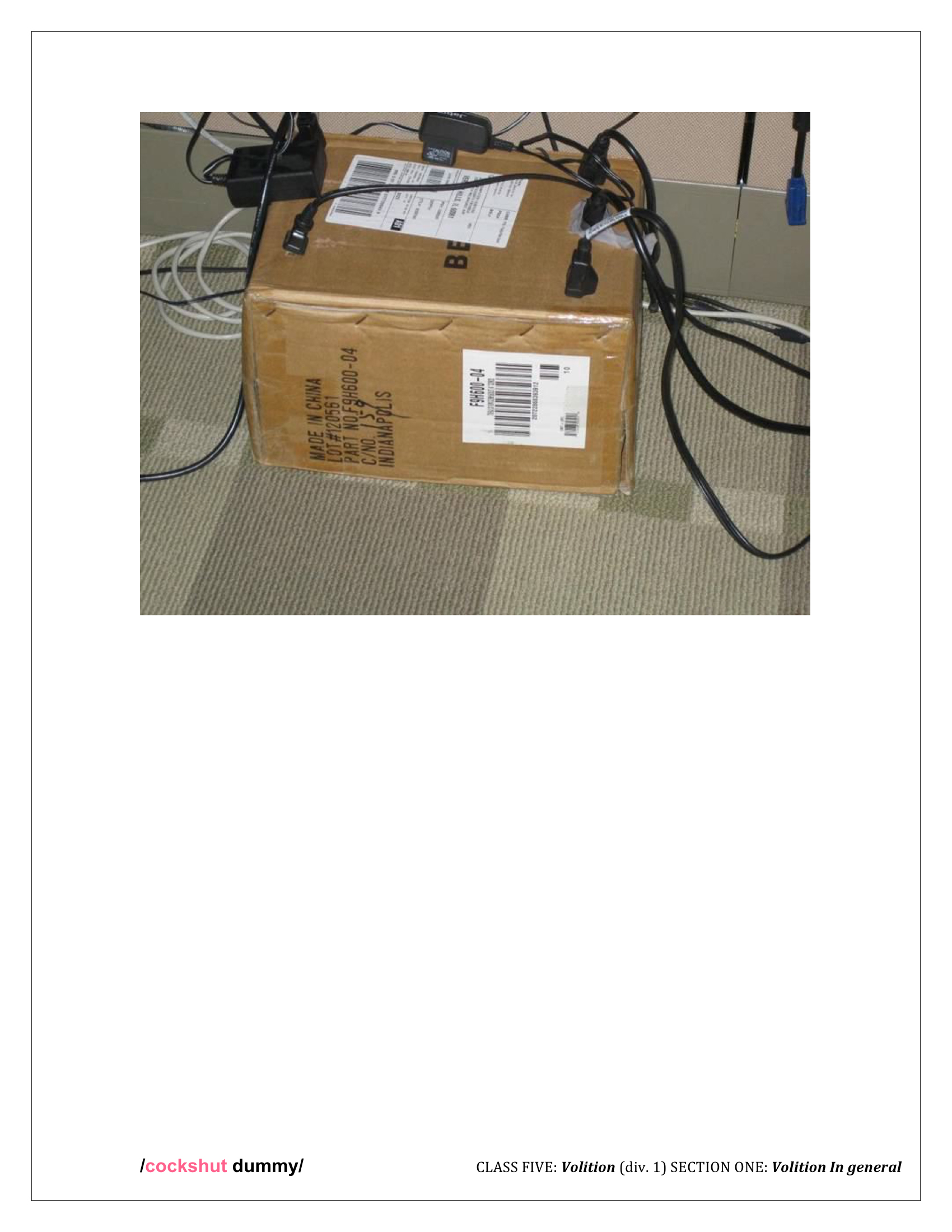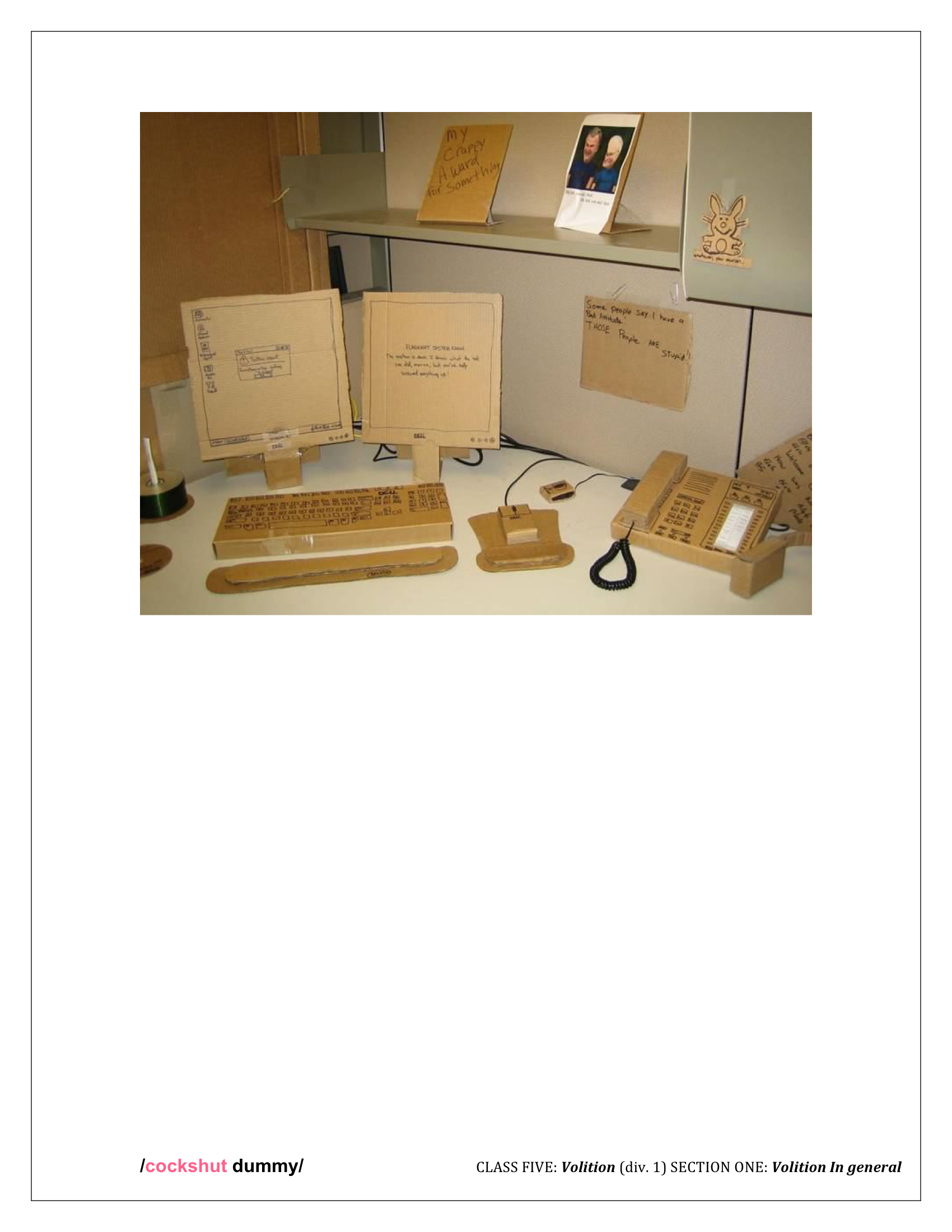Do Not Deal
Carol Szymanski
At the time of the financial crisis of 2008, I was working in London for a French bank, and at the same time I was about two-thirds of the way through a long-term art project, cockshut dummy, involving words and images in the form of email. When Lehman Brothers declared bankruptcy that September, all work in my field came to a halt. Memos were coming through every day stamped with the ominous words DO NOT DEAL—meaning, do not undertake any new business, do not make any trades, just do nothing and wait. Suddenly I found myself part of an army of people who had no work to do but who had to keep going through the motions of working in order to maintain the illusion that they might still be of use to their employer. Around this time, a colleague sent me some photos that seemed to sum up this situation: someone had replicated their entire office in cardboard, encasing it, so to speak, in its own simulacrum. Obviously this person, like me, had a lot of spare time on his or her hands, and (whether consciously or not) an artistic outlet for the expression of this peculiar state of fakery we were all involved in. I used some of the images into my cockshut dummy email along with a text incorporating the timely slogan DO NOT DEAL. Today, we have a new President whose claim to authority has been his supposed genius at “making the deal.” But in many ways, we are still living out the consequences of the financial crisis of more than eight years ago, when the whole system seemed on the verge of collapse, and we continue to work on behalf of a system we know is not working, a house of cards (or should I say, of cardboard?) propped up only by the absence of any apparent alternative structure. So those images that circulated anonymously on the internet in 2008 seem as relevant to our situation as ever. With this in mind, and impressed with the anonymous artist’s construction within his or her work space something like a Borgesian map exactly congruent with the “empire” it was to represent, I decided to take this idea of congruence one step further and blow up those little jpegs to life size, that is, to the scale of the office the pictures were taken in and of, and to create a photographic environment out of them. I decided to print the images on Kraft paper, which would be of a similar hue to the cardboard used in the images, and was happy to discover that the absorptive qualities of this paper would erase the pixels that would have normally shown up and synthesize the colors into a kind of painterly blur—making it all the easier, I think, for the viewer’s gaze to seep into the insubstantial dream world of the contemporary economy.
